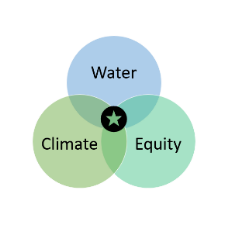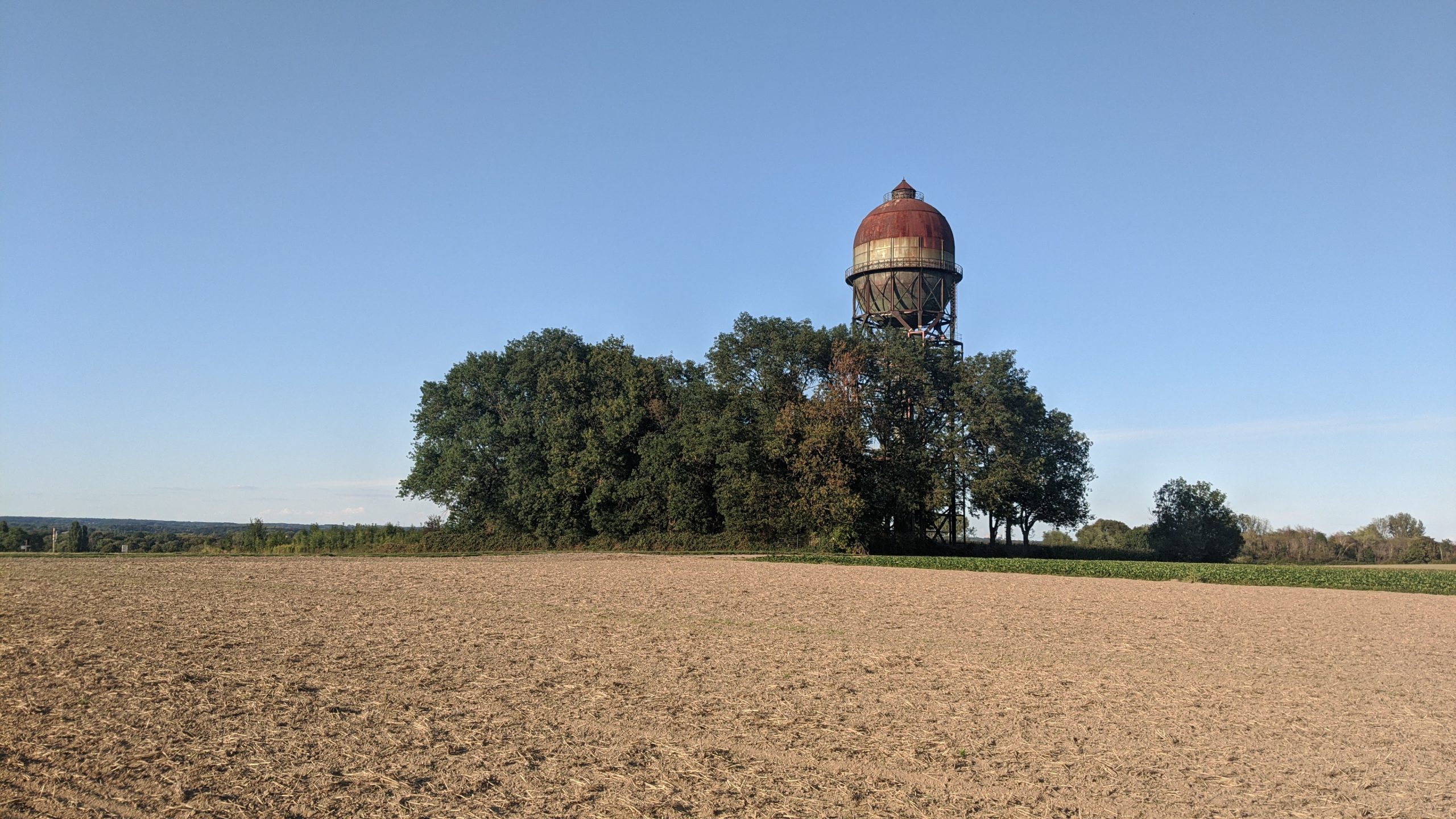Dr. Shannon McNeeley, Dr. Amanda Bielawski, Heather Cooley

Key Takeaways
- The United States has not adopted the Human Right to Water, while millions of people across the country lack access to clean, reliable water or basic plumbing, and tens of millions rely on water systems with Safe Drinking Water Act violations.
- The strategy responds to research needs at the intersection of water insecurity, climate change impacts, and social equity.
- Collaborative approach to feature co-designed research working to support frontline communities through their partner networks.
- This strategy builds on Pacific Institute’s longstanding work on water equity and the Human Right to Water.
Throughout the world and in the United States, water insecurity and climate change both disproportionately affect frontline communities—those who are impacted first and worst from climate change. Historically disadvantaged and marginalized communities, including rural communities, low-income communities, and communities of color, often suffer the most from environmental injustices related to climate change and lack of safe and reliable water from household and community water systems. However, the intersection of these challenges—the impacts of climate change on our ability to equitably meet the needs for water in overburdened and underserved communities moving forward—is not well documented or broadly understood.
Today, the Pacific Institute formally launched its new Water and Climate Equity (WCE) strategy designed to address community and decision maker needs by focusing research and outreach efforts on the nexus of water insecurity, climate change, and social inequity. The work aims to inform decision makers on the realities of the situation and highlight climate-resilient strategies to address the humanitarian water crisis in the context of current and future climate change.
This Water and Climate Equity work is one of three Pacific Institute focus areas supporting the Institute’s organizational goal to catalyze the transformation to water resilience by 2030. The Pacific Institute also focuses its research on nature-based solutions and water efficiency and reuse. The Institute plans to integrate equity throughout its research over time.
Water insecurity realities
More than 2.2 billion people globally lack access to safely managed drinking water (United Nations, 2019), while millions of people in the United States are without clean, reliable water, lack basic plumbing, or rely on water systems with Safe Drinking Water Act violations.
Today, the Human Right to Water is formally recognized by the United Nations, the State of California, and dozens of global businesses. Yet, the United States as a whole has yet to recognize the Human Right to Water or meet the United Nations Sustainable Development Goals for clean water and sanitation (SDG 6), climate action (SDG 13), or reduced inequalities (SDG 10).
Responding to community needs with a collaborative, co-designed research approach
Communities and community-serving organizations have long called for rigorous and empirical science-based research as a core strategy for protection from the negative impacts of climate change. To ensure the strategy was guided by community voices and needs, dozens of interviews were conducted with leaders working with and for frontline communities on water and climate justice issues. Responding to communities’ expressed needs for such research, the Pacific Institute will engage in a co-designed approach with communities through their support networks. This approach will include the collaborative co-development of research questions, project design, outcomes, and decision-support tools.
The collaborative approach aims to cross-pollinate leading ideas and practices with community needs and priorities across diverse regions and stakeholder groups. Co-designed research will result in technical insights and culturally appropriate and feasible recommendations for both frontline communities and their supporting networks and organizations. The work will aim to strengthen existing networks that mobilize science for environmental justice and the co-production of applied research and decision-support tools that are accessible and usable by those who need them the most.
Research focus and outcomes
Through collaborative research, the Pacific Institute will specifically examine the effects of climate change on small and medium-sized water and sanitation systems in frontline communities with water systems particularly vulnerable to climate change. The Water and Climate Equity strategy will analyze the distributional effects of environmental policy, as well as the equity and fairness of environmental policy processes pertaining to water systems in frontline communities. While this work will initially be focused on the United States, it may later be expanded to other geographies through the Pacific Institute’s international work and networks.
The overarching research questions include:
- How will climate change, as a risk multiplier, exacerbate water-related risks for marginalized and low-income communities and communities of color, and how will this change or intensify those risks and responses in the future?
- What are some viable ways to make the water and wastewater systems serving these communities more equitable and climate-resilient?
- What are the barriers and opportunities for implementing those solutions in frontline communities?
The desired outcomes of this work initially include:
- Providing evidence-based research and climate-resilient strategies for frontline communities on small to medium rural and disinvested urban water systems in the United States.
- Elucidating the lack of the fulfilment of the Human Right to Water and WASH (water, sanitation, and hygiene) in the United States.
- Integrating equity throughout Pacific Institute’s other programmatic areas, including research on nature-based solutions and water efficiency and reuse, as well as its efforts to advance corporate water stewardship.
Building on existing expertise through partnerships
Recognizing and respecting that there are already many individuals and organizations working in this area both in the United States and globally, the Pacific Institute’s research team will both build upon existing expertise and form strategic partnerships wherever possible. While the primary focus will be on climate-resilient water systems for frontline communities, target audiences will include:
- community-based organizations (CBOs) that support frontline communities;
- water and climate equity-focused non-governmental organizations (NGOs);
- water utilities;
- local, state, federal, and tribal policymakers; and
- corporate leadership.
This work will target those who have the most leverage and obligation to provide water security and fulfill the Human Right to Water. It will rely on close partnerships with key supporting organizations and decision makers who would benefit from technical expertise and added capacity to conduct needed analyses.
The Pacific Institute is already closely partnering with the Rural Community Assistance Partnership (RCAP) and the Livelihoods Knowledge Exchange Network (LiKEN) to assess climate change impacts and preparedness needs in small, rural communities in the United States. It is also partnering with DigDeep on assessing the impacts of climate change on water, sanitation, and hygiene (WASH) in frontline communities throughout the United States.
Pacific Institute’s longstanding work on water equity
The Pacific Institute has been a strong voice for water equity for more than three decades. During the 1990s, the Pacific Institute called on global policymakers to formally recognize water as a human right. The Pacific Institute has also focused on related issues, such as drought equity, water affordability, and clean drinking water for disadvantaged communities.
The new Water and Climate Equity strategy launched today formally adds the climate change context to this longstanding water equity work by specifically exploring how climate change will exacerbate water stress for low-income communities and communities of color across the United States while highlighting solutions and strategies for water resilience in frontline communities by 2030 and beyond.
For more information, visit the Pacific Institute’s Water and Climate Equity page here.


